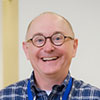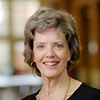This article is more than 5 years old.
A couple of weeks ago, several Z. Smith Reynolds Library faculty and staff had the opportunity to attend the WISE Conference held at the beautiful Benton Convention Center February 14-15, 2019 in downtown Winston-Salem. WISE is an acronym for “Workshop on Intercultural Skills Enhancement Workshop” which is “the pioneering conference for faculty leaders, program coordinators, and administrators to develop the knowledge and skills needed to help students advance their intercultural skills and awareness during their abroad experiences.” As library faculty and staff, we were the outsiders since most of the attendees work with global programs at their respective institutions. For the first time since the founding of WISE in 2009, there was a breakout session that addressed the role of libraries and librarians in supporting international experiences both on campus and abroad. That presentation was led by Patrick Rudd and Dianne Ford from Elon University and Hu Womack and Joy Gambill from ZSR. It was a lot of fun and we were honored to be asked to present!
Joy at WISE
I attended three breakout session that all involved rubrics. As part of the International Chinese Student Task Force, I felt I needed to have a better handle on program assessment. As it turned out, none of the breakouts directly addressed what I needed, but they each sparked ideas and helped me this about the complexities of cultural differences. I learned about the Intercultural Praxis Model. I also learned that Purdue University has 9,200 international students out of their 40,000 total student population. They have a robust Friendship Program that is similar to ours but includes more structure and uses a AAC&U value rubric for assessment. The last breakout was a rubric for program assessment which was not the angle I needed but it was interesting to see how they set it up. The last session of the day (I only attended Thursday) was the keynote by Dr. Alta Mauo who previously worked as the Director of the Office of Multicultural Affairs at Wake Forest. Dr. Mauro currently works at the director of Spiritual Life & Intercultural Education at New York University Abu Dhabi, United Arab Emirates. To say that her job is challenging is an understatement. Her speech was a stark reminder that there are many ways to view gender and social norms and expectations, and trying to navigate that cross-culturally is more complex than what most of us have experienced or thought about.
Travis at WISE
In the spirit of collaboration, I thought it was prudent that I attend the WISE Conference for the first time. I wanted to increase my understanding of my own characteristics, learn how to respond mindfully, and improve on bridging cultural gaps. I learned about the Intercultural Development Continuum: Denial, Polarization, Minimization, Acceptance, and Adaptation. It sounds a lot like the five levels of grief: Denial, Anger, Bargaining, Depression, and Acceptance. I imagine giving up power and privilege in order to include others might cause grief to some. To others, it might mean we will be in a better place after passing on through the Intercultural Development Continuum. In sum, the presentations impressed upon me that we should make conscious and intentional actions rather than unconscious and reactive ones.
Summer at WISE
I attended my first WISE conference in the hopes that I would gain some insight and inspiration in regards to my participation in Joy’s Global Circles Project. This project is one in which we hope to improve domestic and international student friendships on campus. Joy gained her original inspiration for the project from the WISE conference, so I figured it was a good place as any to look for my own inspiration!
The pre-conference session I attended covered how to develop a culturally sound and academically relevant short-term faculty-led study abroad session. This full day session opened my eyes to the full scale of details and logistics that are necessary to pull off a classroom experience abroad, but it didn’t deter me from adding this feat to my long term goals list. This session also gave me the perfect opportunity to start pondering my upcoming Fall 2019 course that is currently under construction. I’ve now started to consider how I can plan the course to be implemented abroad in the future. This cannot be done without keeping intercultural competencies and outcomes in mind.
Many of the sessions I attended over the following two days discussed just that. Through discussions of intercultural and experiential pedagogical practices to intercultural competency assessment, I learned that integrating the outcome of intercultural learning is not as easy as one may think.
One of the most interesting sessions I attended was one on the challenges faculty leading study abroad programs may face. Using real-world experiences, the presenter gave the audience case studies and asked us what we would do. Realizing that in many of these cases, I would have no clue was jarring! This realistic and honest account of a faculty members’ experiences abroad was much appreciated and made switch perspectives from how the students’ experience the study abroad experience; to how a faculty member experiences it. This presenter had taken students abroad every year for the past 12 years! Her enthusiasm for the experience was clear, but her trepidation about returning for year 13 after a particularly traumatic experience with the students was real and raw. She reminded the audience about self-care and built realistic expectations of university support for faculty in these positions.
My favorite sessions were ones where I heard directly from librarians (in this case, our very own Hu & Joy) or international students. These were two separate sessions, but both sessions inspired me to do more or improve my practices and they tied quite nicely together. The international students were presenting about domestic and international student friendships. They claimed that an international students chances of having domestic friends increased when they felt they had domestic student support and attended social activities. It felt good to know that ZSR Is a place promoting both of these key factors and therefore increasing the chances of international and domestic students bonding. Our library, and libraries as a whole, are often key players in this regard on campus and I do hope that next year more librarians are presenters at WISE. I know I will submit a proposal and at the very least represent the library crowd as an attendee!
Hu at WISE
This was my first time attending the WISE conference! As Joy mentioned already, we were fortunate enough to be part of a panel with librarians from Elon. Our program, “A World of Possibilities: Academic Library Partnerships for Intercultural Development” gave us the opportunity to demonstrate how libraries can foster cross-cultural relationships. I also only attended the Thursday sessions, starting with “Collaborative Excellence in Global Education” which focused on partnerships to support study away students. This was great food for thought for me since so many of our outreach programs at ZSR focus on students on campus. As part of this program, we did a S.W.O.T. analysis regarding the resources we have available for these students. This session encouraged me to take a look at what more ZSR could do for study away students.
The session on “Pedagogical Best Practices for Fostering Intercultural Learning” was a deep dive into designing experiences that foster learning and growth and creating meaningful opportunities for documenting reflection. The speaker focused on the D.I.E. model, Develop, Interpret, and Evaluate, and the D.I.S. model, Develop, Interpret, and Shift Your Perspective, which. The power of shifting one’s perspective was fascinating in that it forces the individual to assume their initial perspective is incorrect. I’ll be looking for ways to incorporate this in my instruction!
Summer and I attended the same session “What Would You Do? Navigating the Challenges of Study Abroad Using Faculty Experiences” and I agree with Summer’s assessment, Dr. Prudence Layne’s enthusiasm and years of experience made this a fascinating session. She has a world of experience navigating these challenges and her insights were so valuable. The conference plenary keynote at the end of the day by Dr. Alta Mauro was a highlight of the day! As Joy already mentioned, Dr. Mauro’s role as Director of Spiritual Life & Intercultural Education at NYU Abu Dhabi puts her in a unique and challenging position (to quote her bio) “at the intersections of American Theory and Middle Eastern practice.” Her scenarios based on her real-world experiences were powerful examples of how challenging this work is.
WISE is a wonderful international conference, which is both local and free to WFU faculty and staff. and we are grateful to ZSR and WFU for giving us the opportunity to attend! Many of us hope to return next year!



5 Comments on ‘ZSR at WISE 2019’
Excellent reports, all! I hope to attend next year’s conference!
Thanks so much to you all for sharing this info! I’ll put in a plug for the University’s Global Laureates Academy as something that might also interest you: https://global.wfu.edu/global-laureates-academy/#
Y’all all did great jobs explaining how these sessions can be used personally and professionally to communicate with different populations and in unfamiliar settings. Thank you for sharing!
I’ve been watching the WISE conference grow in influence and size over the last few years and wondered how relevant the content would be for our work in ZSR. Your conference summary indicates that next year, I should go! Thanks for sharing this!
So glad you all could attend. Libraries play an important role in cross-cultural learning and experiences and I am glad the four of you could represent ZSR!